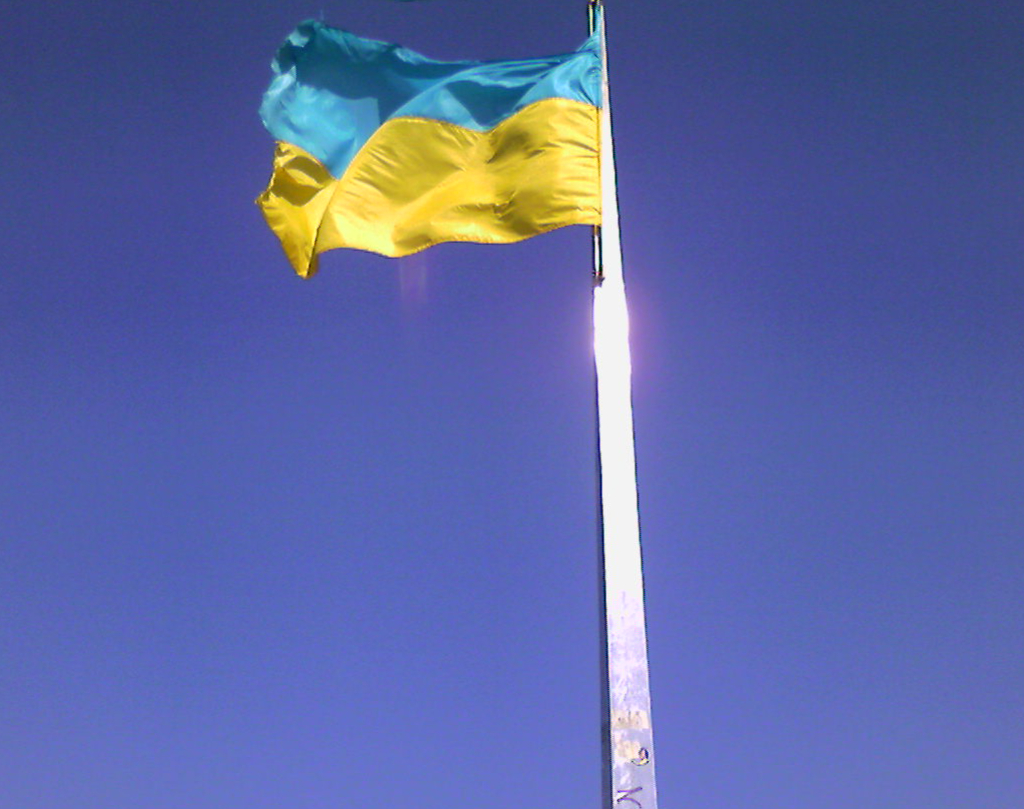Civilization
The Difficulty of Decisive Victory in Ukraine
Ukraine cannot hope to achieve a truly decisive victory, and their Kursk expedition will not achieve that goal.

Once again, Ukraine is on the attack, launching a counter-offensive in Russia’s Kursk region—an all too familiar battlefield for the World War II historian. With the tactical success of this offensive, the Ukrainian military’s morale is bound to rise. Amid the analyses swirling around this ongoing battle, there is a subsection of defense scholars and policymakers who place a premium on achieving decisive victories on the battlefield. Specifically, they advocate for the U.S. send Ukraine more weapons to decisively defeat Russia.
Ukraine should sue for peace
Taken at surface value, these proponents of decisive warfare have a point: the quicker Ukraine can win this war, the better. No one, especially the Ukrainians, wants to fight drawn-out wars. Yet, an extensive historical record shows multiple instances of attempts at decisive victories failing, and shows that Ukraine will unlikely be able to achieve blitzkrieg-like victory against Russia. To avoid a disastrous outcome from the pursuit of a decisive victory, Ukraine and its allies must begin some sort of peace process.
For starters, the success or failure of a decisive offensive depends on whether an attacking force can launch a rapid surprise attack. The last thing an attacking force wants is for the enemy to know where it will strike. Otherwise, the defender will have the time to fortify its defenses to counter these attacking forces. In war, defense typically has the advantage over offense. Defending forces can remain concealed throughout its home terrain, draw the enemy’s attacking forces further into its territory to overextend the attacking forces logistical lines, launch preemptive attacks, and use suppressive fires to prevent the attacker from advancing. This means that while an attacking military might try to knock out the enemy military in a swift attack, a capable defending force can force an attack into a battle of attrition.
Loss of the element of surprise
Germany’s attack through Belgium in World War I showed how an attacking force failed at achieving victory through a rapid surprise attack. Under the command of Helmuth von Moltke, the German military attempted to knock France out with an enveloping attack. The goal was to use a flanking maneuver from the north to overwhelm Belgian and French defense and capture Paris. Ultimately, French and British forces were able to counterattack and halt the German advance, resulting in a war of attrition on the Western Front.
In the case of today’s Russo-Ukraine War, the chances of Ukraine achieving a strategic surprise attack on Russia are nonexistent. After its failed initial offensive, Russia built layers of defenses throughout the eastern regions of Ukraine to halt Ukraine’s counter-offensive in 2023, using trenches, dragons’ teeth, and anti-tank ditches. It remains to be seen how Ukraine could swiftly punch through these defenses to retake this territory without being grinded to a halt.
The defenders are skilled, also
Second, when mentioning successful decisive battles throughout history, proponents of decisive warfare tend to point out only the skills of the attackers. Just as in international politics, warfare is about relative power between opposing forces. The reality is that a successful decisive attack—and warfare victory in general—is as much dependent on the weaknesses of the defender as it is on the merits of the attacker. During the Gulf War, for instance, the U.S. Army conducted a textbook example of left-hook maneuver and sent the Iraqi military packing in a span forty-three days. Yet, the U.S. faced a weak military adversary in this war, where the Iraqi army created poor defenses and possessed virtually no airpower.
In the case of Ukraine’s current war against Russia, while the Ukrainian military possesses advanced Western military weapons, Russia possesses a larger number of troops and continues to adapt its tactics and operations on the battlefield. All-in-all, Russia is not weak enough for Ukraine to be able to soundly defeat them and achieve a total victory.
Russia will never concede to Ukraine
Moreover, there is still the problem whether such a battlefield victory would force Russia to concede in this war. Historically, a decisive victory on the battlefield does not always translate to victory in war. Broadly speaking, wars are won in one of two ways: draining the enemy’s resources and manpower or crushing the enemy’s will to fight. Decisive victories rely on the later form of victory. However, it is quite difficult to break the will of an enemy. After all, as Clausewitz attested, war is an extreme form of hatred between peoples and nations, and it is very difficult to quell hatred in a world where nationalism is the dominant ideology.
Crushing an enemy’s will to fight in a swift military operation also becomes politically difficult when the war has been going on for some time. With so many resources used and so much blood spilt, it becomes less likely that one side will throw in the towel after a massive defeat on the battlefield. During the Napoleonic Wars—of which proponents of decisive warfare constantly cite as the dawn of rapid warfare—Napoleon’s conquering of Moscow in 1812 failed to force the Russians to surrender. In fact, this campaign ended up turning the tide against the French, with the Russians, and eventually the Prussians, Austrians, and British, pushing back against Napoleon and eventually defeating him at Waterloo.
Today’s wars “decided at the peace table”
While wanting Ukraine to win against Russia is an admirable cause, proponents of decisive victory in warfare need to realize the difficulty of achieving such a victory in warfare. At the end of the day, there is no single way to win in warfare. Nor does “winning” mean total victory.
In fact, as Michael Howard noted, today’s wars are “decided at the peace table.” Victories in battle provide a means to a realistic political end. Ukraine should attempt to use this victory in Kursk as an opportunity to begin negotiations with Russia, showing Russia that this war is in a state of never-ending attacks and counterattacks. Achieving a lasting peace between both countries will require both to accept and uphold peace conditions—admittedly, a task easier said than done.
Wanting Ukraine to win in this war is an admirable cause. Yet, total and decisive victories are hard to achieve in modern warfare. Analyses on how to achieve victory—and what victory in this war looks like—must be grounded in military history. Ukraine’s future depends on it.
This article was originally published by RealClearDefense and made available via RealClearWire.
Benjamin D. Giltner is a defense and foreign policy analyst. He earned a Masters of International Affairs from George H.W. Bush of Government and Public Service at Texas A&M University. His research interests include military strategy, great-power competition, and deterrence.
-

 Accountability2 days ago
Accountability2 days agoWaste of the Day: Principal Bought Lobster with School Funds
-

 Constitution2 days ago
Constitution2 days agoTrump, Canada, and the Constitutional Problem Beneath the Bridge
-

 Executive23 hours ago
Executive23 hours agoHow Relaxed COVID-Era Rules Fueled Minnesota’s Biggest Scam
-

 Civilization22 hours ago
Civilization22 hours agoThe End of Purple States and Competitive Districts
-

 Civilization4 days ago
Civilization4 days agoThe devil is in the details
-

 Executive4 days ago
Executive4 days agoTwo New Books Bash Covid Failures
-

 Civilization4 days ago
Civilization4 days agoThe Conundrum of President Donald J. Trump
-

 Executive4 days ago
Executive4 days agoThe Israeli Lesson Democrats Ignore at Their Peril











